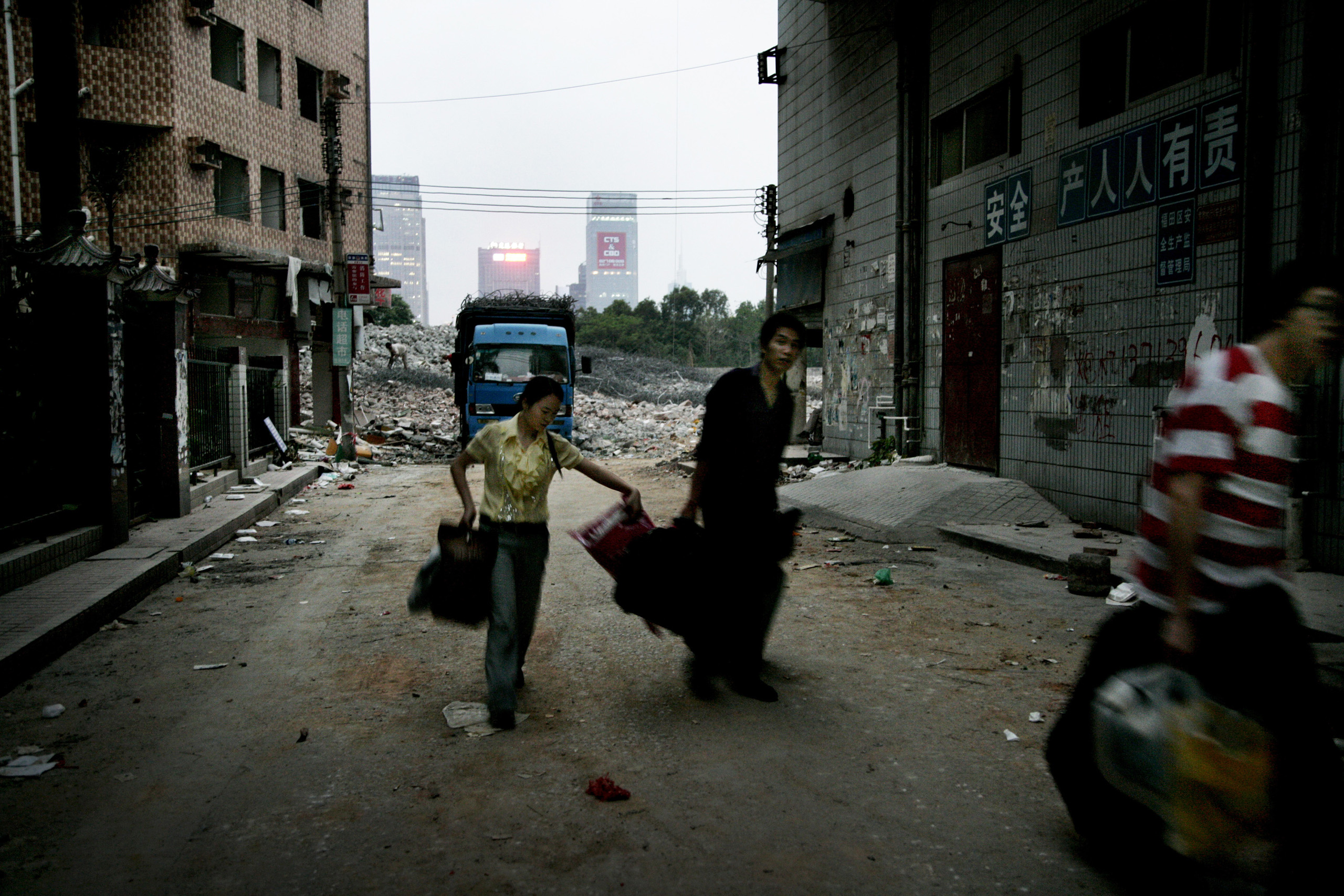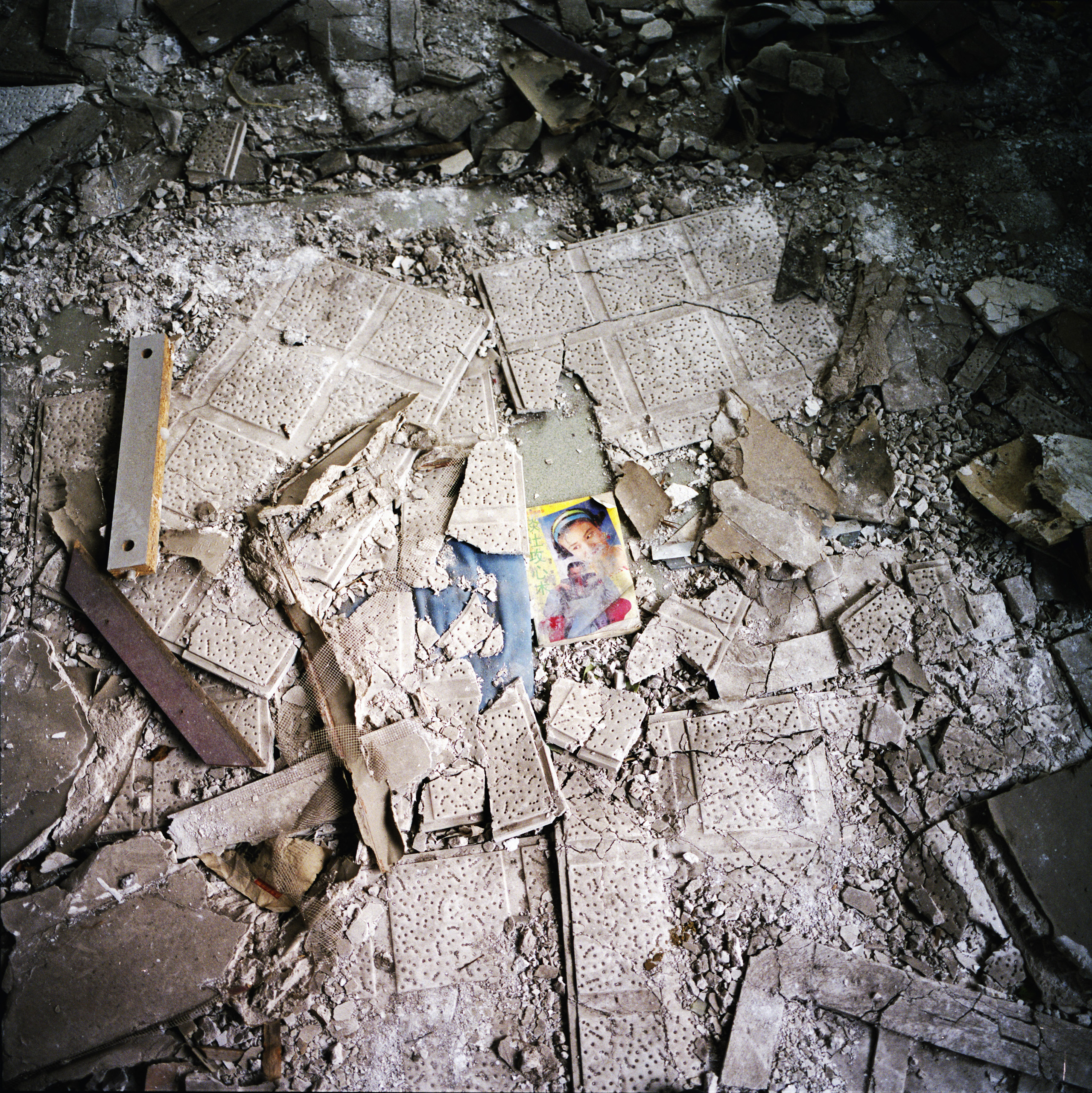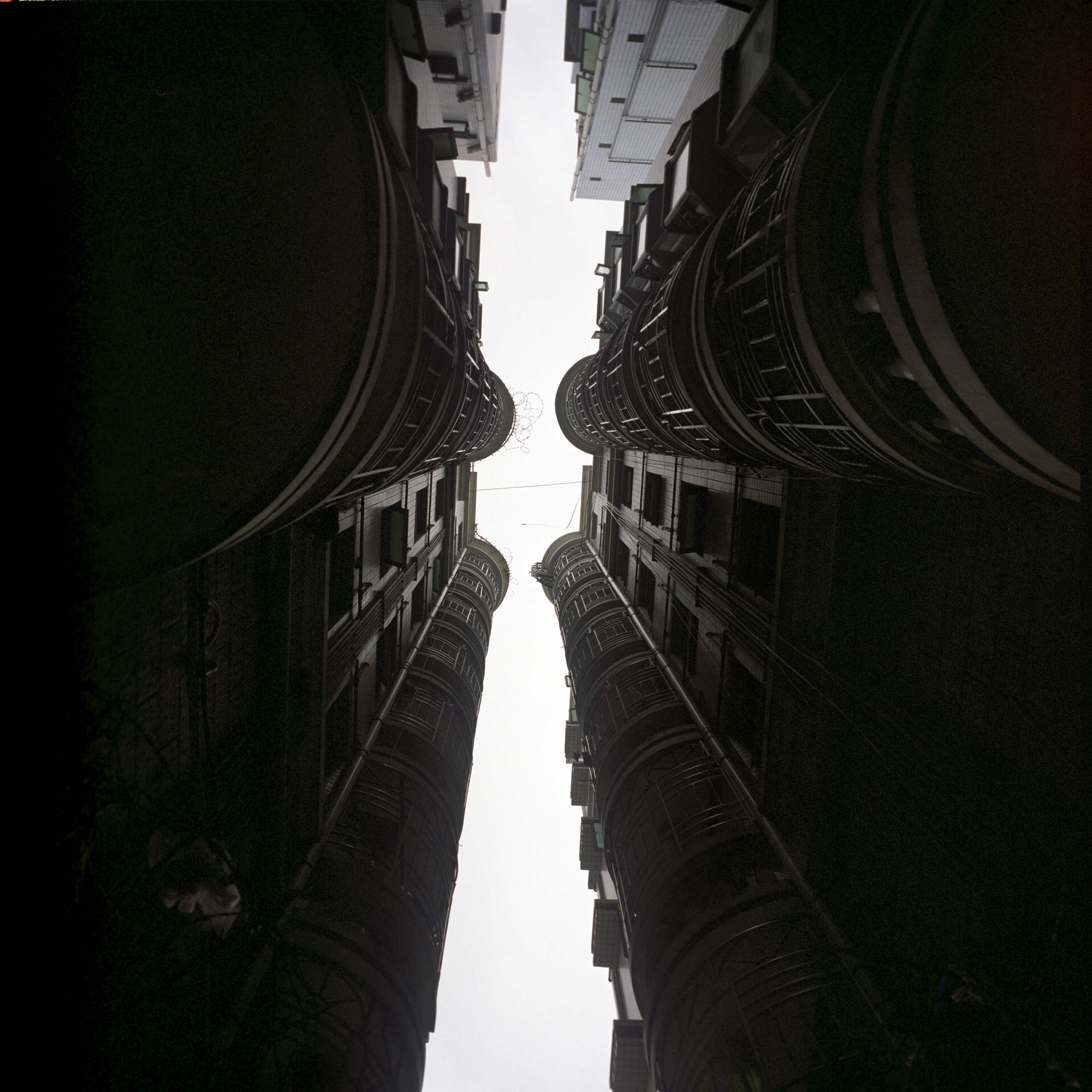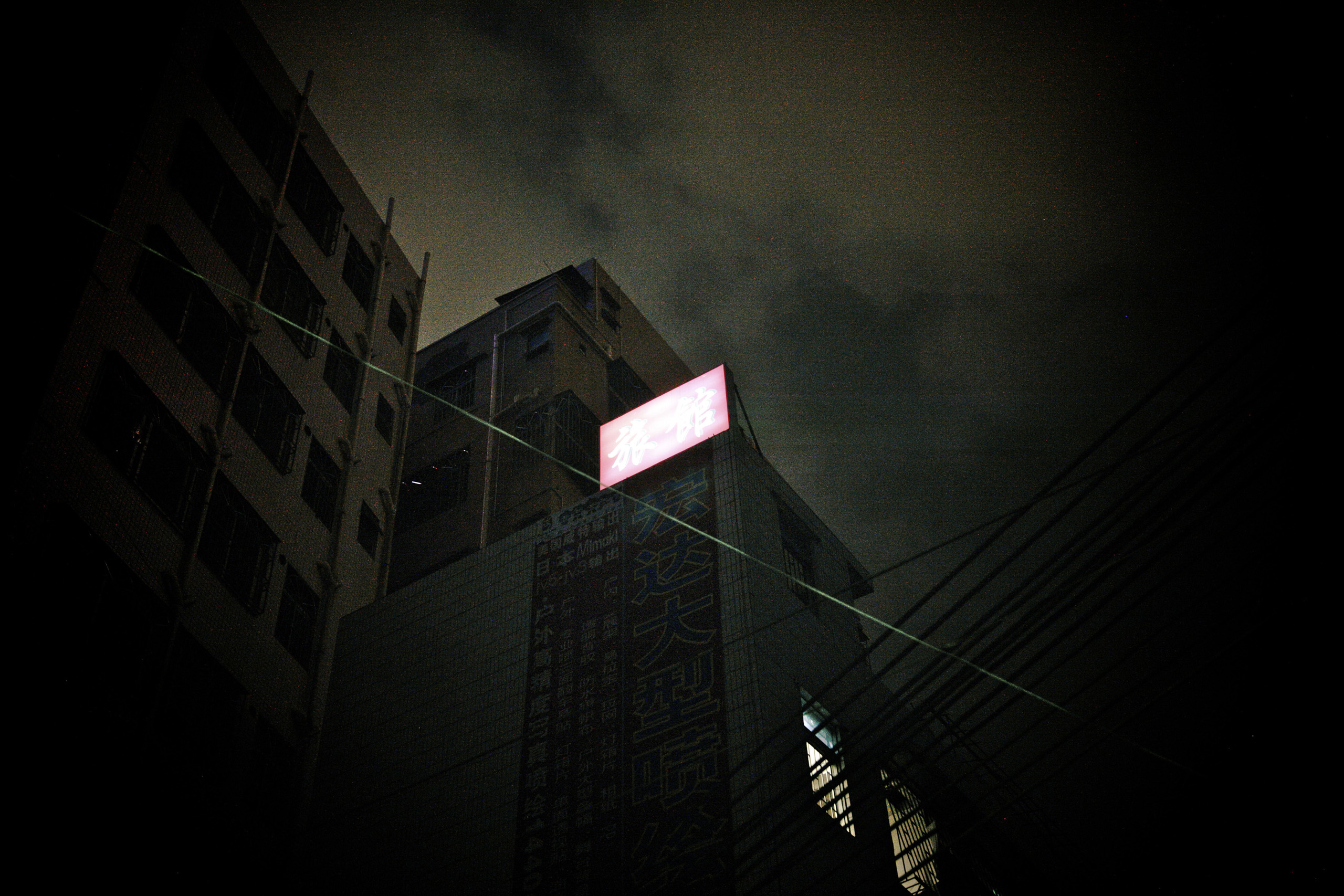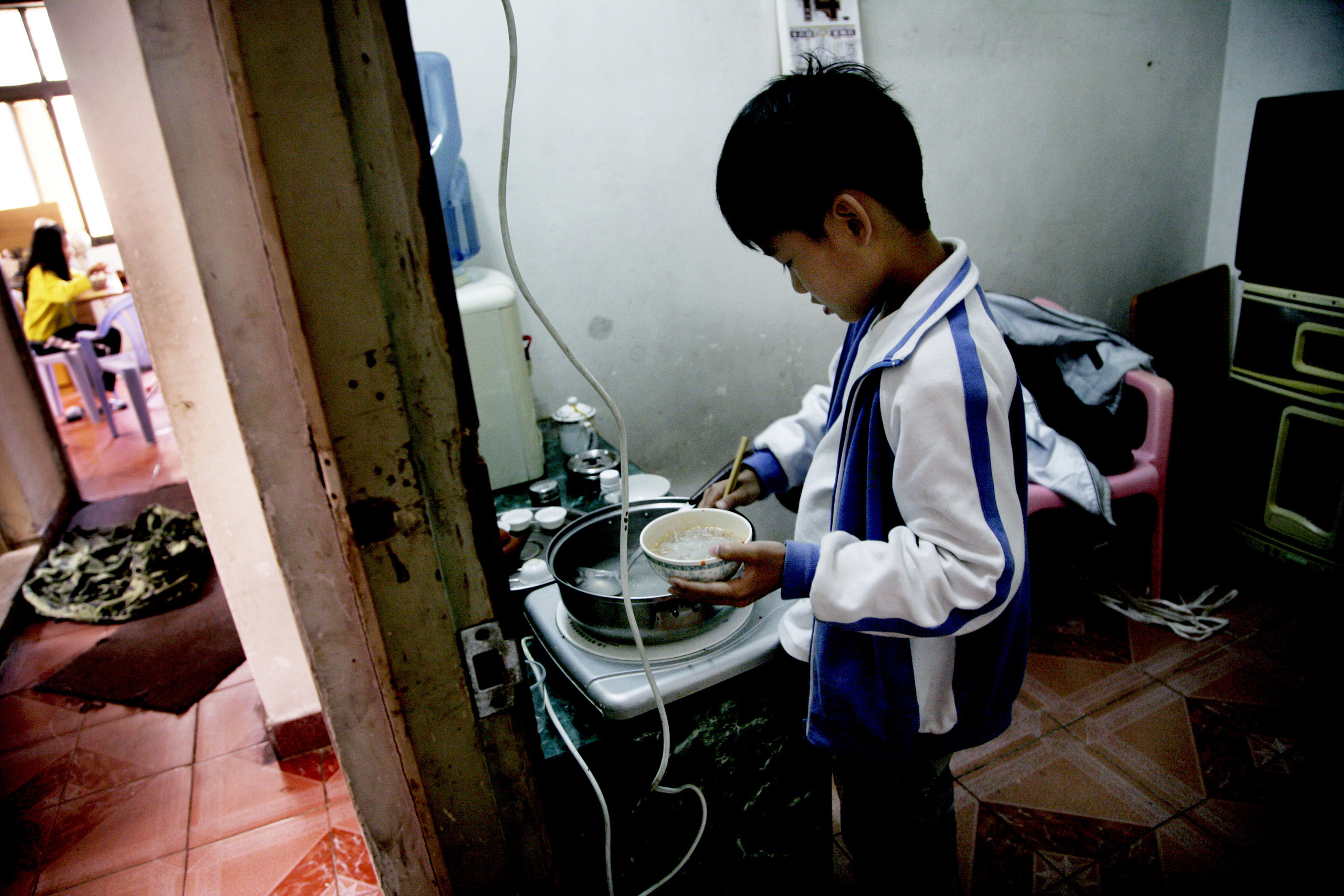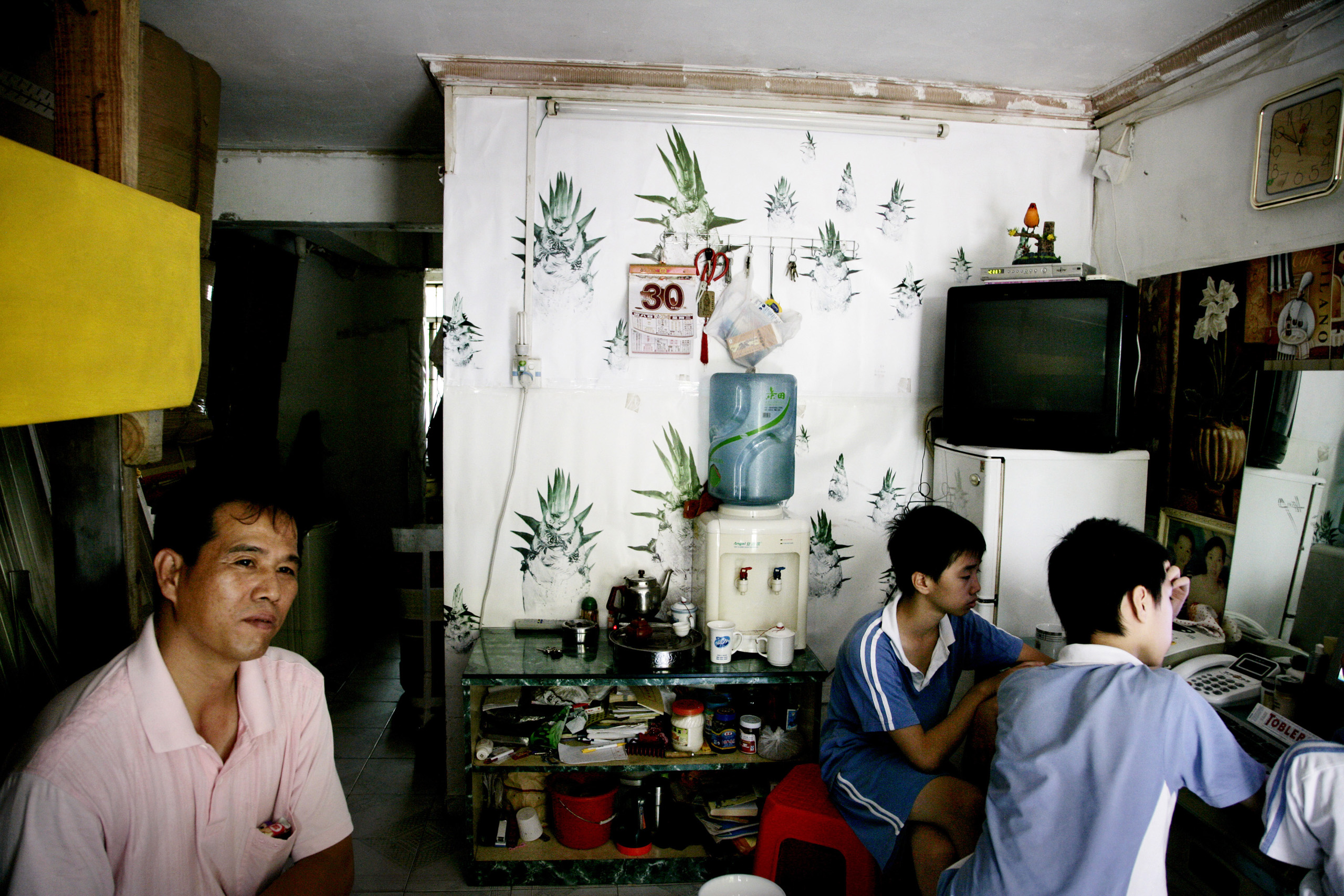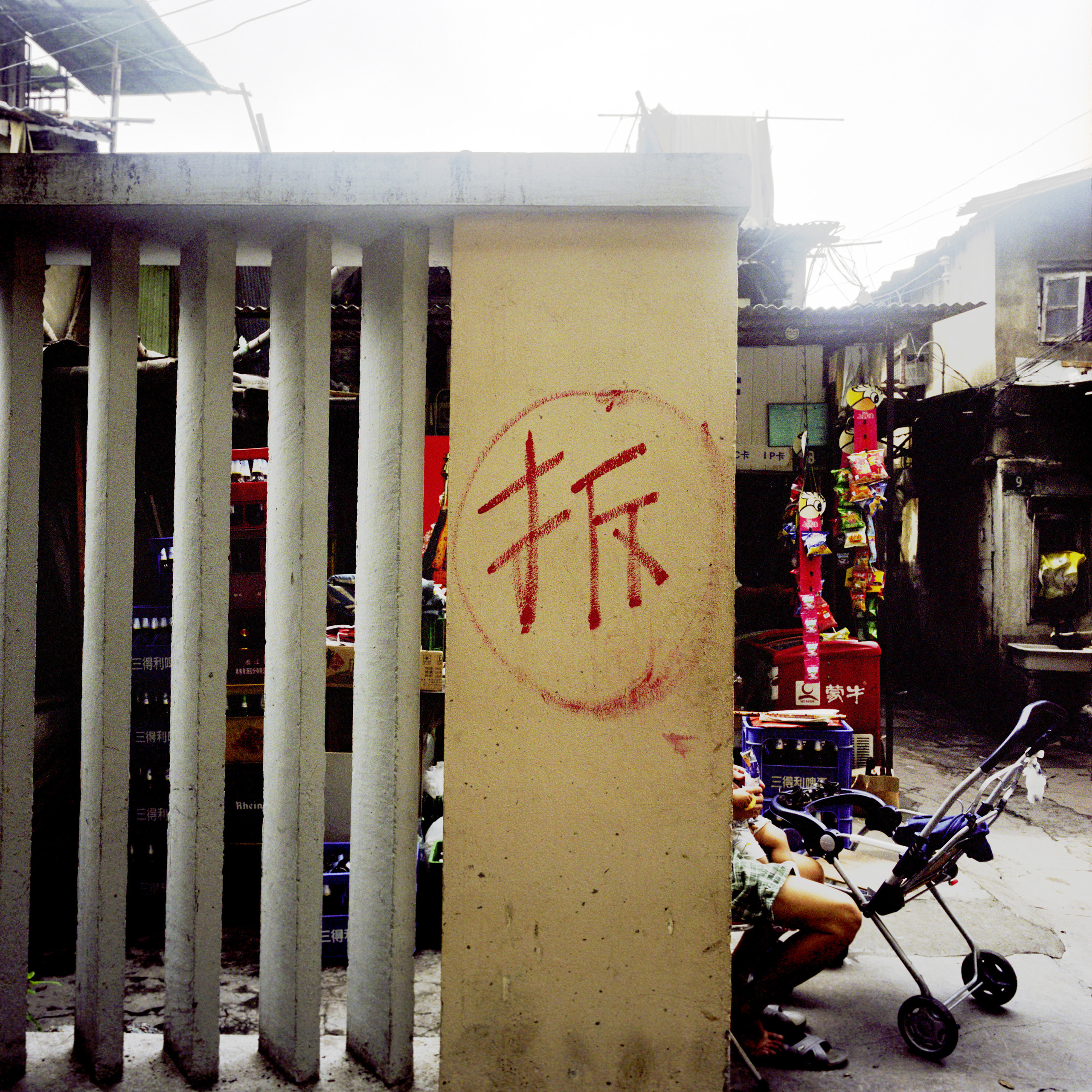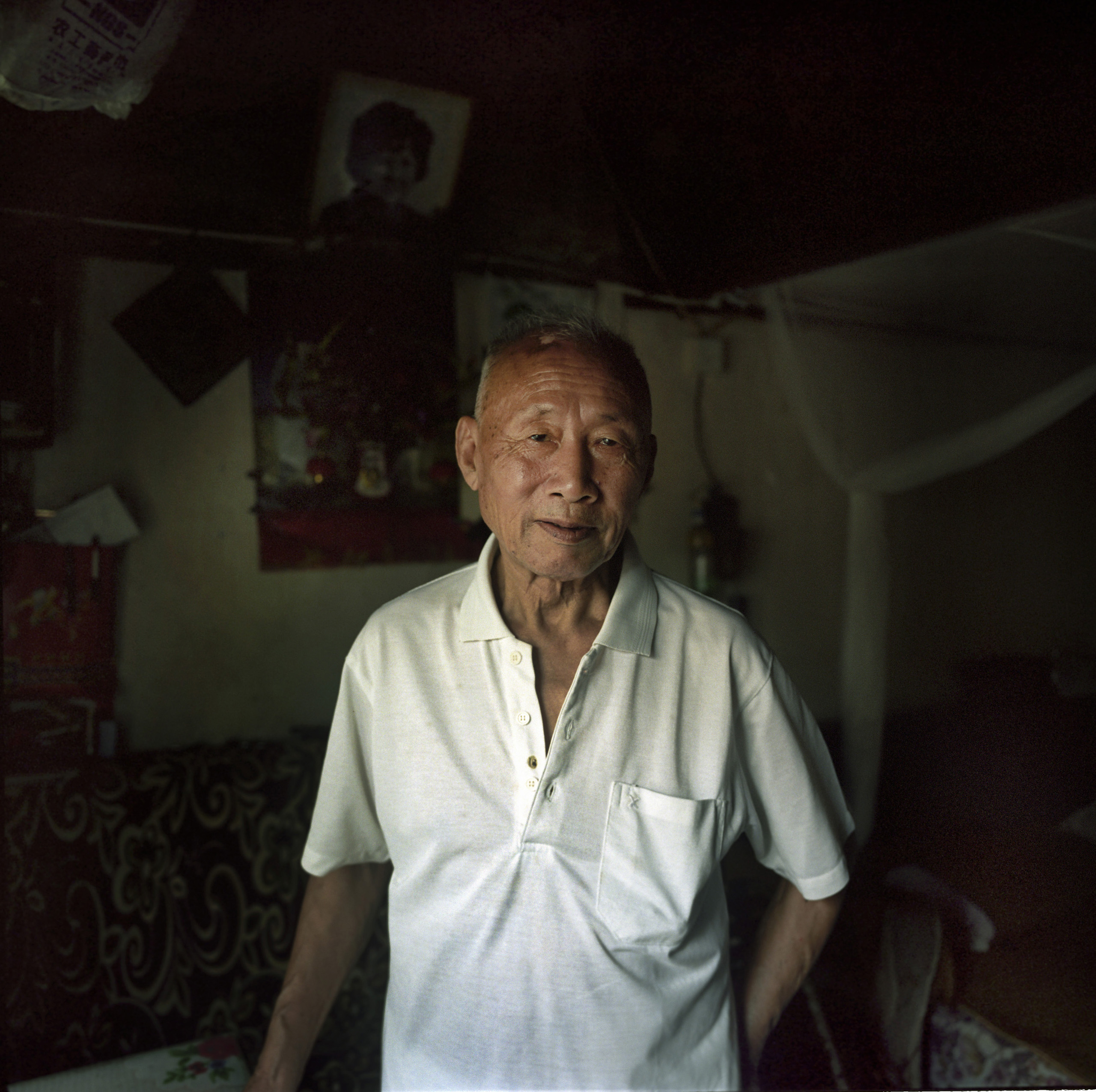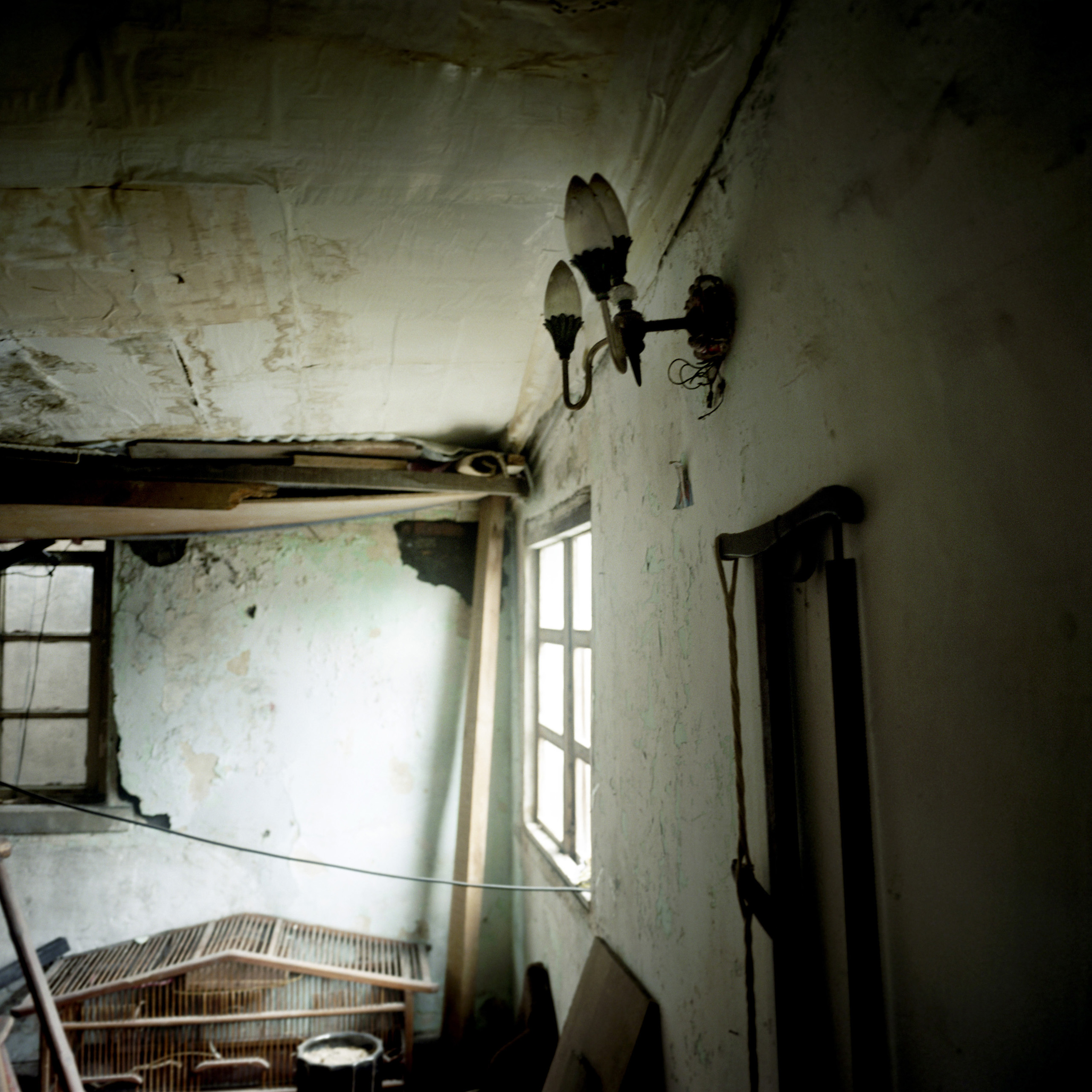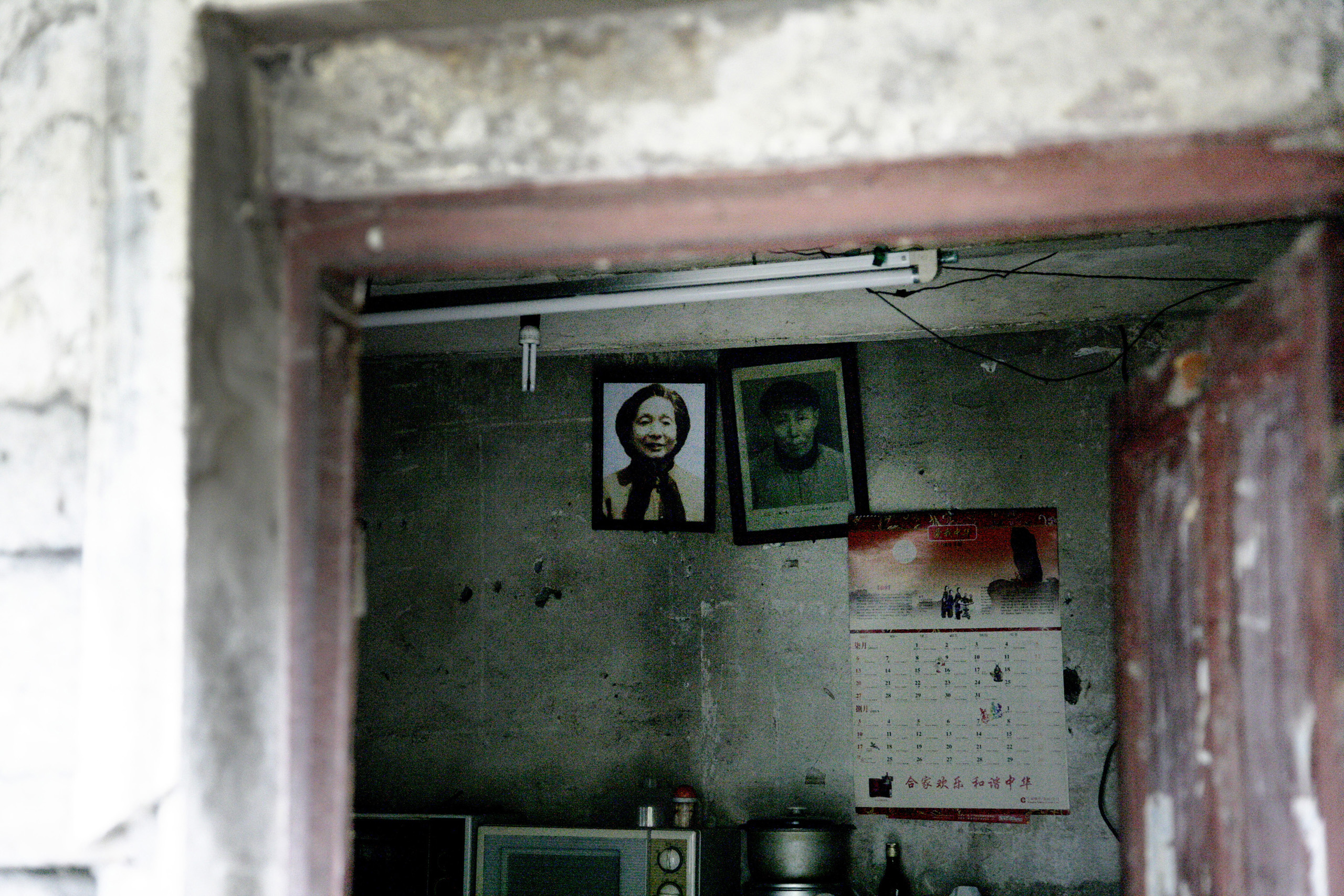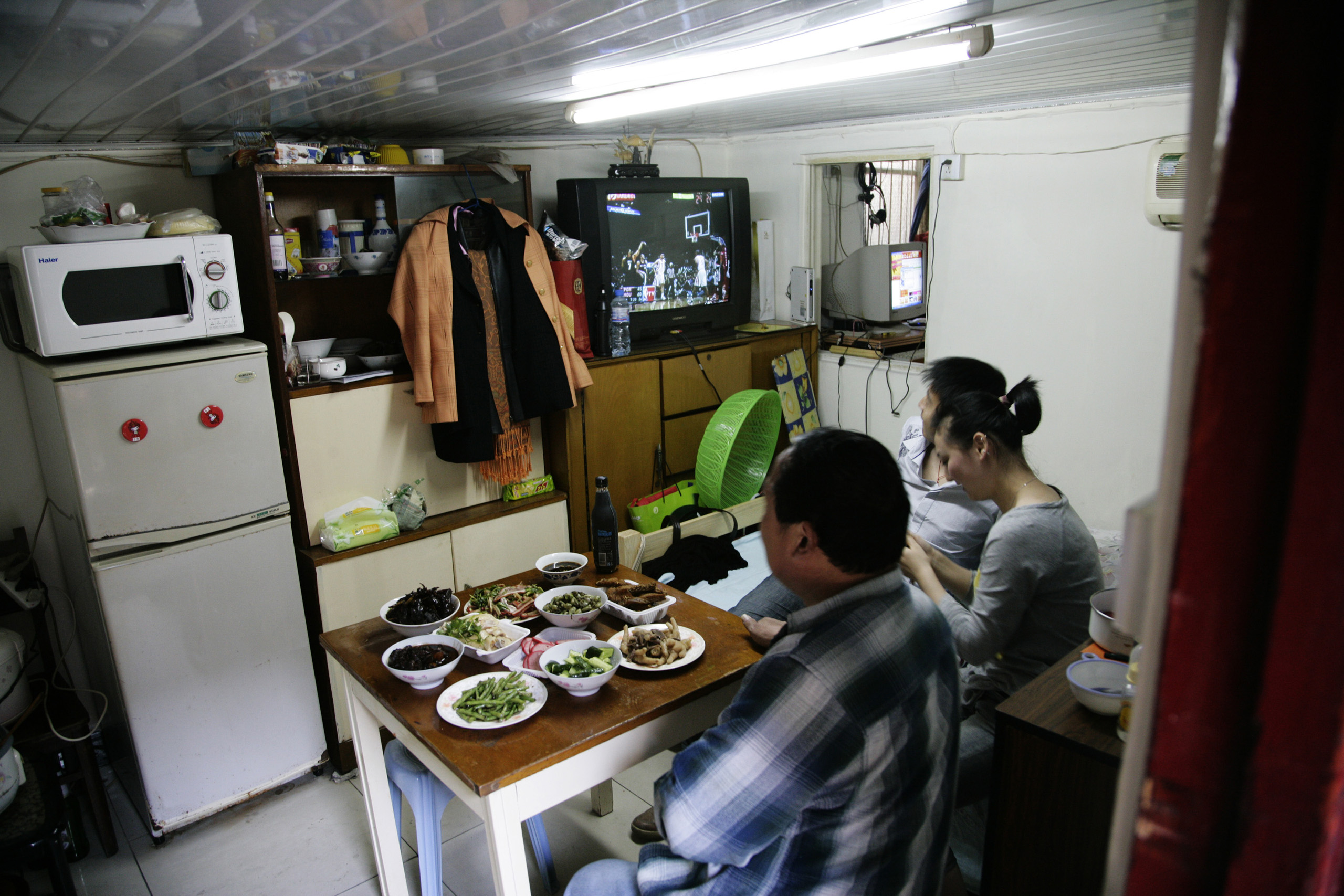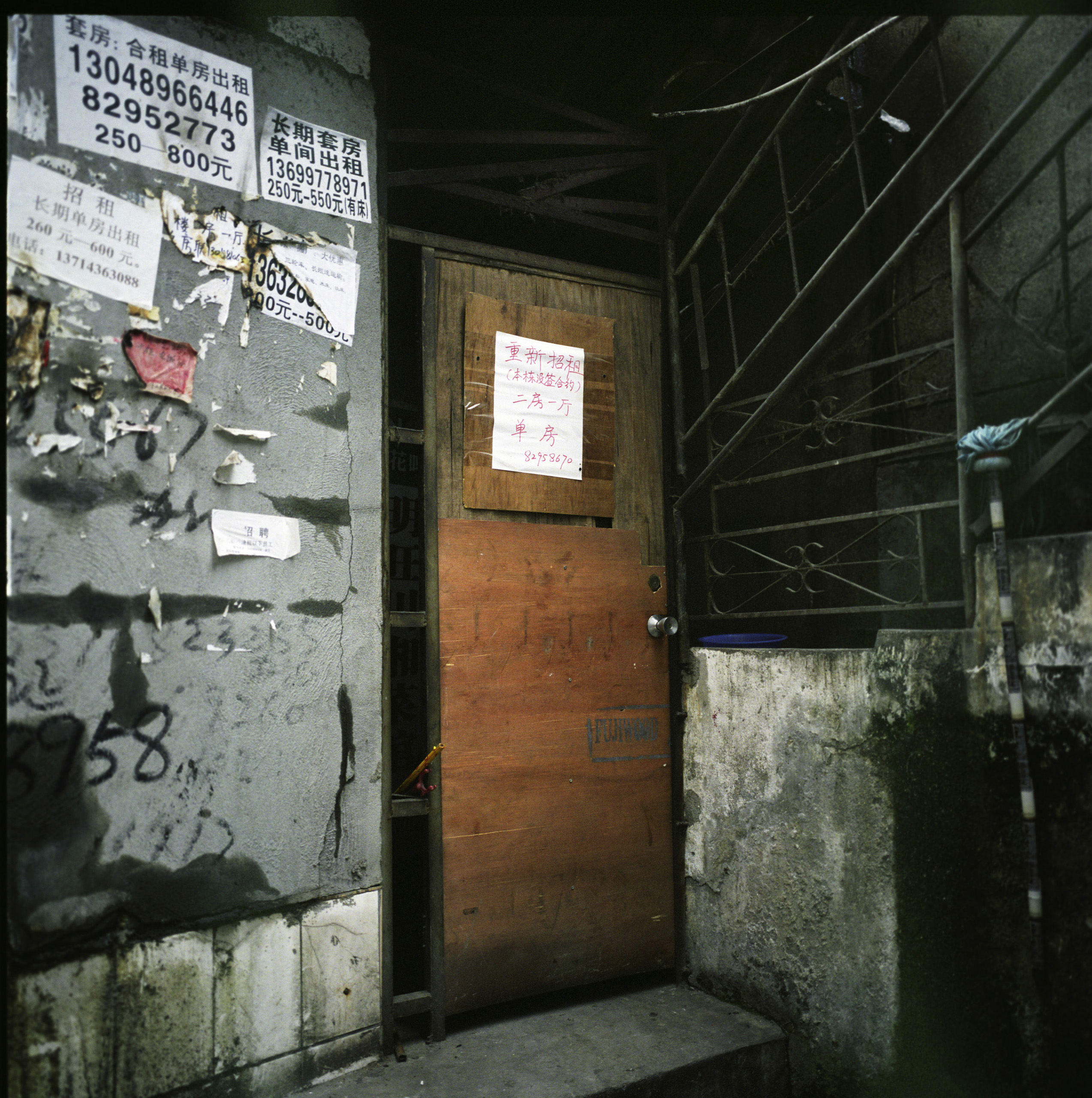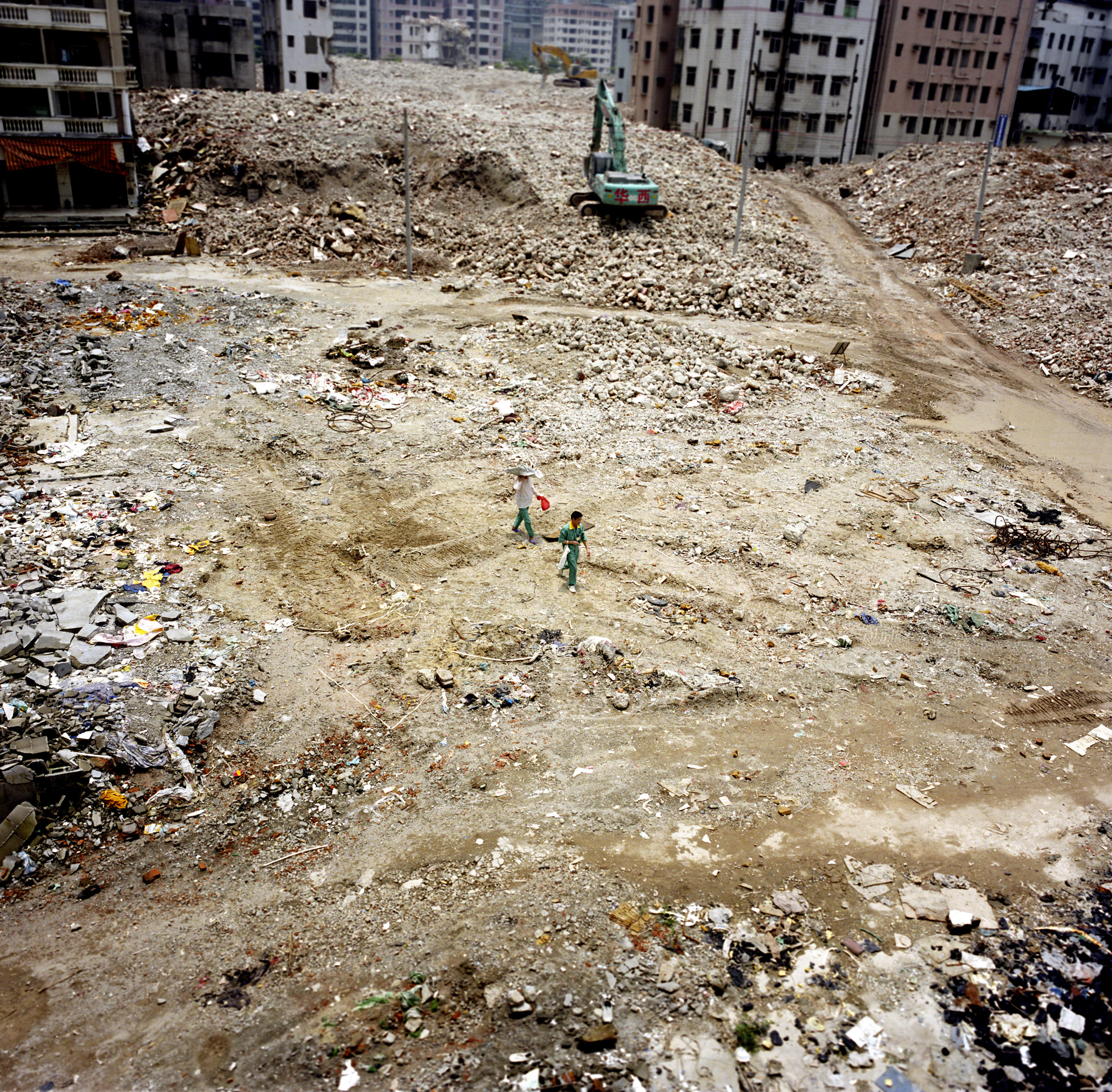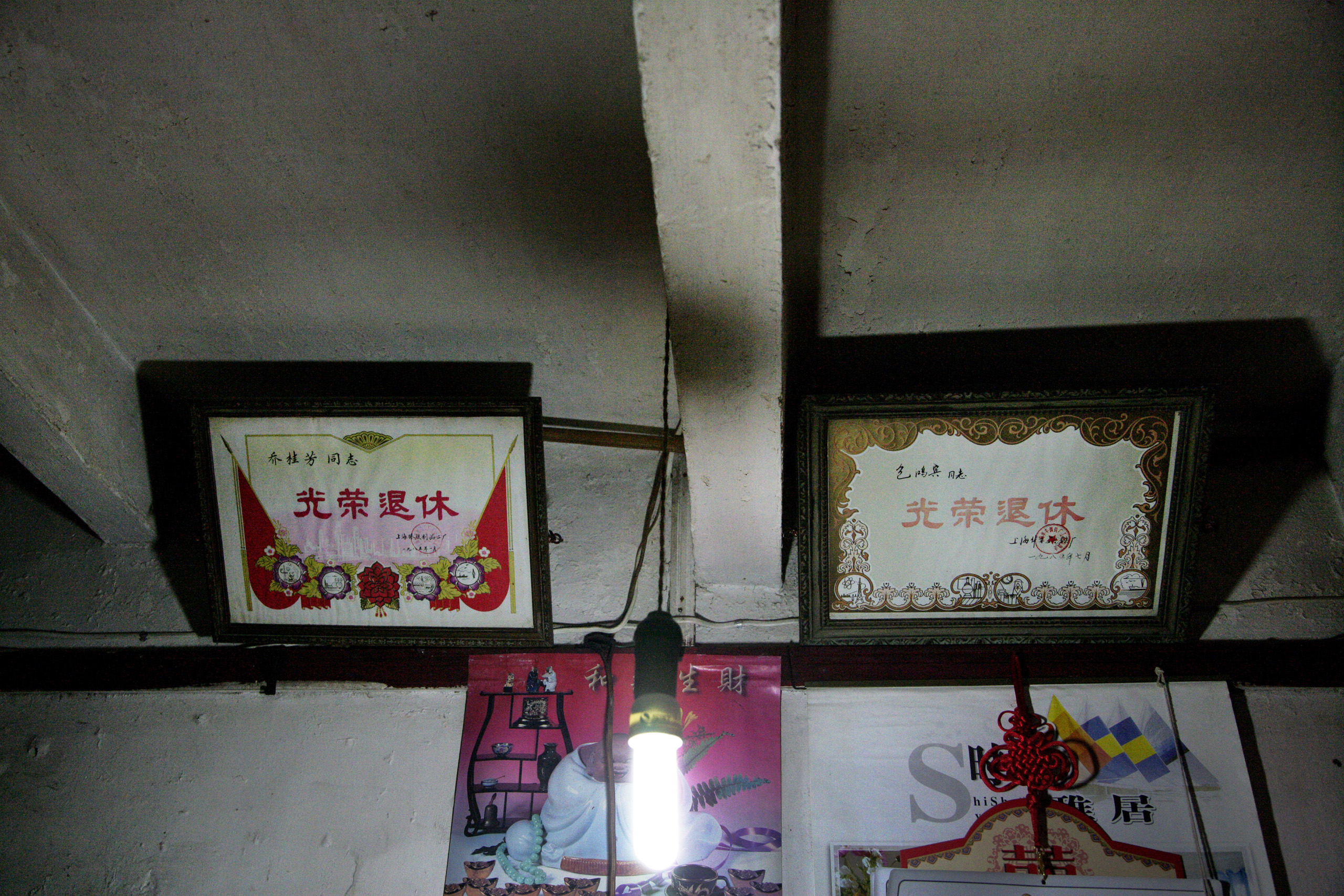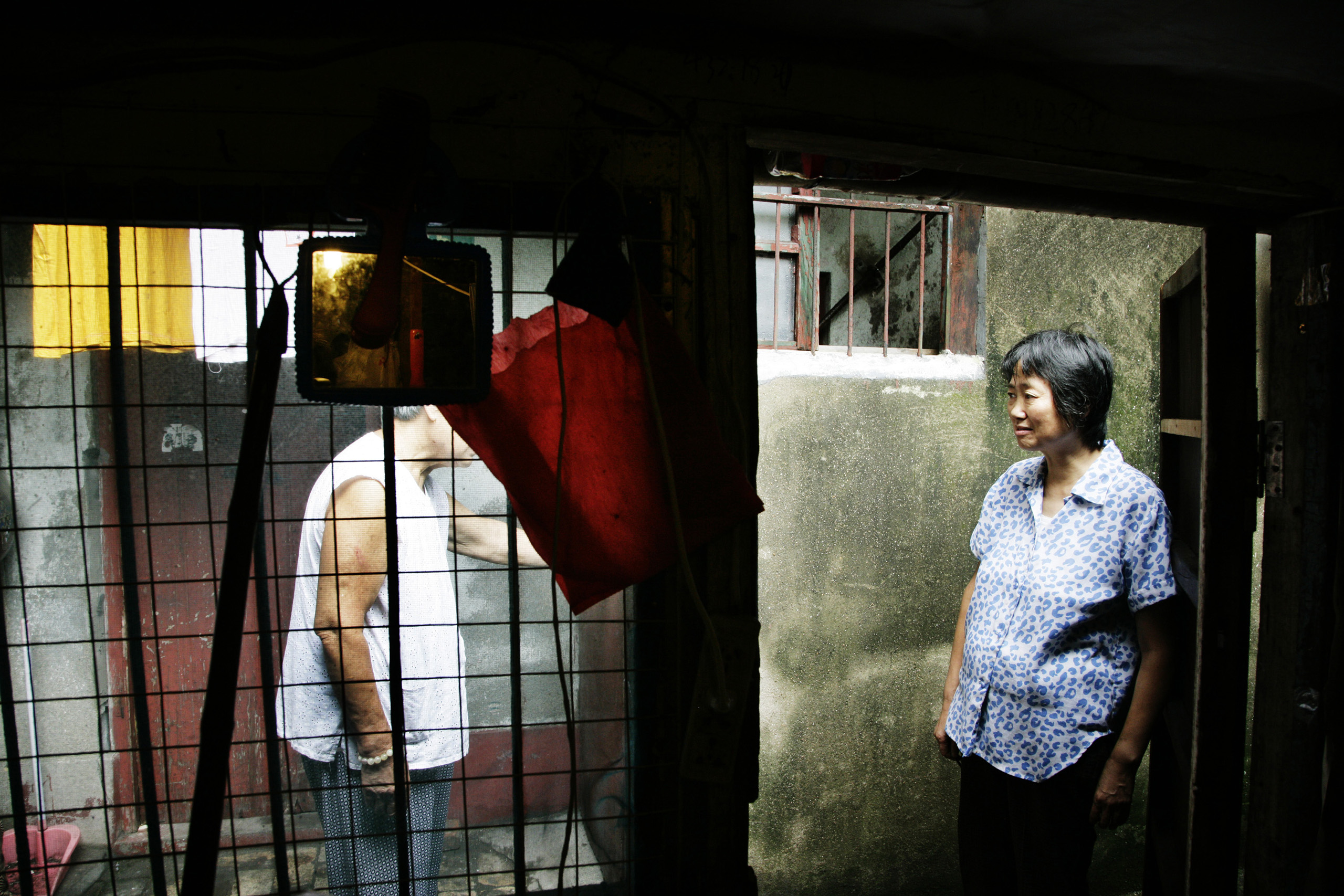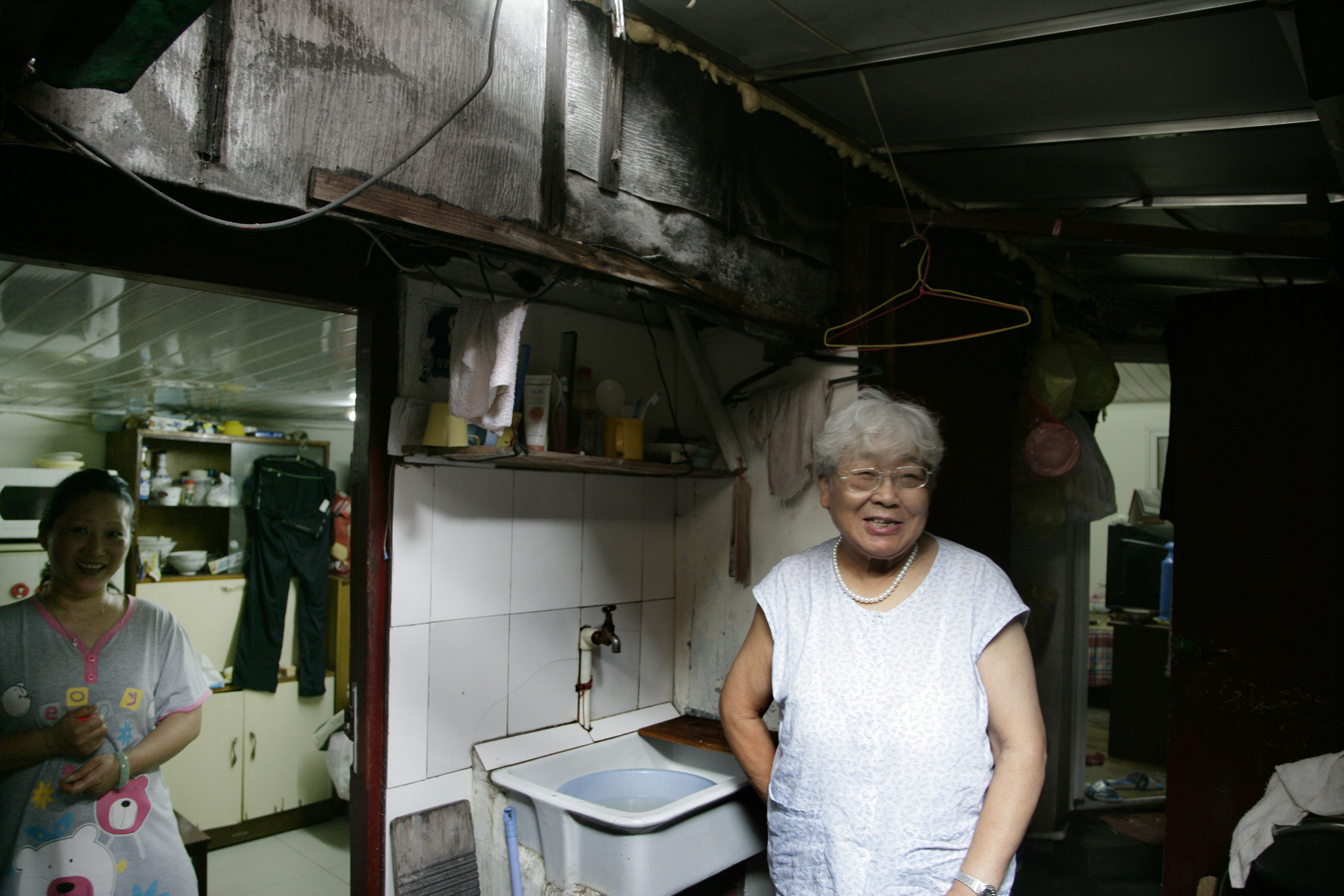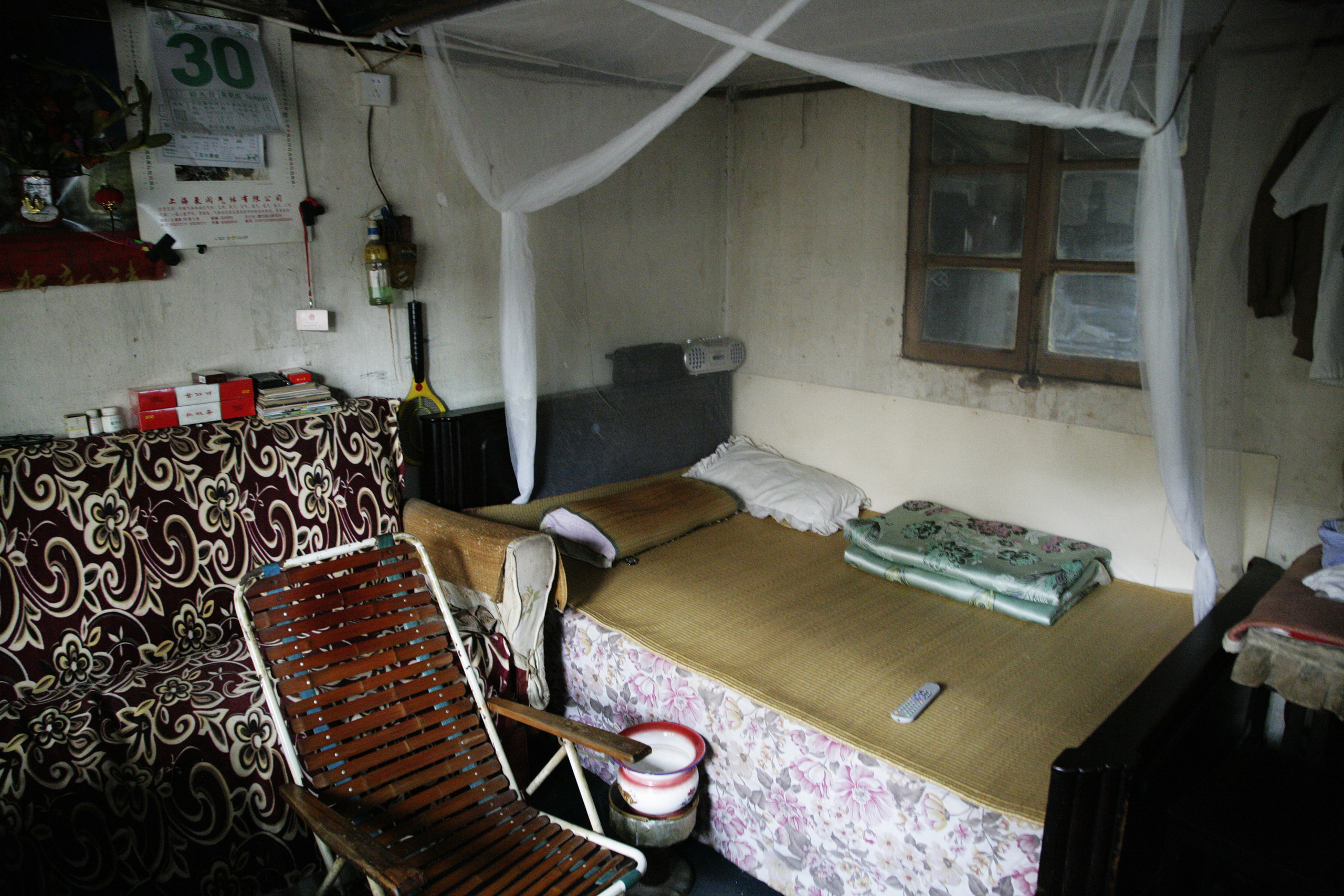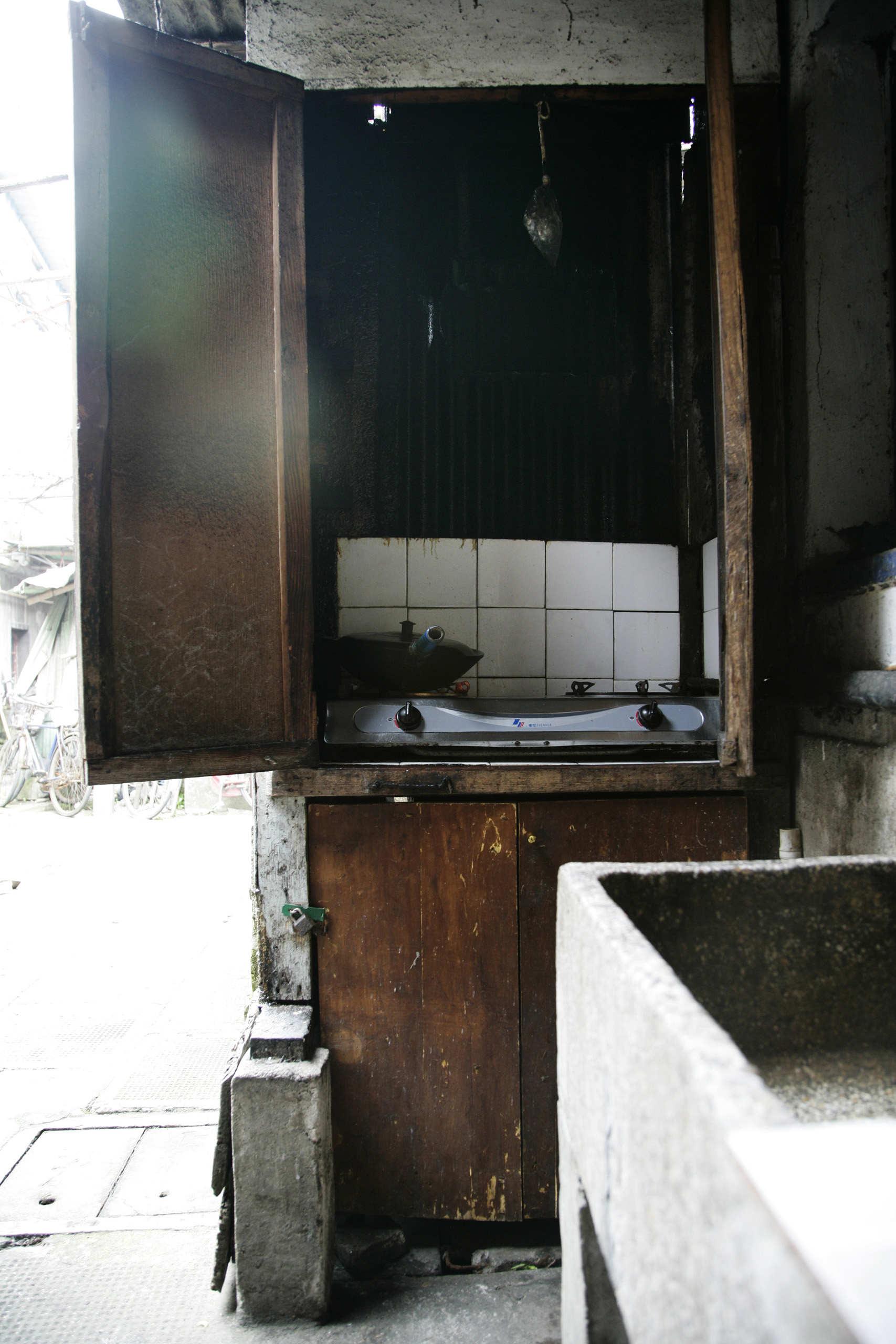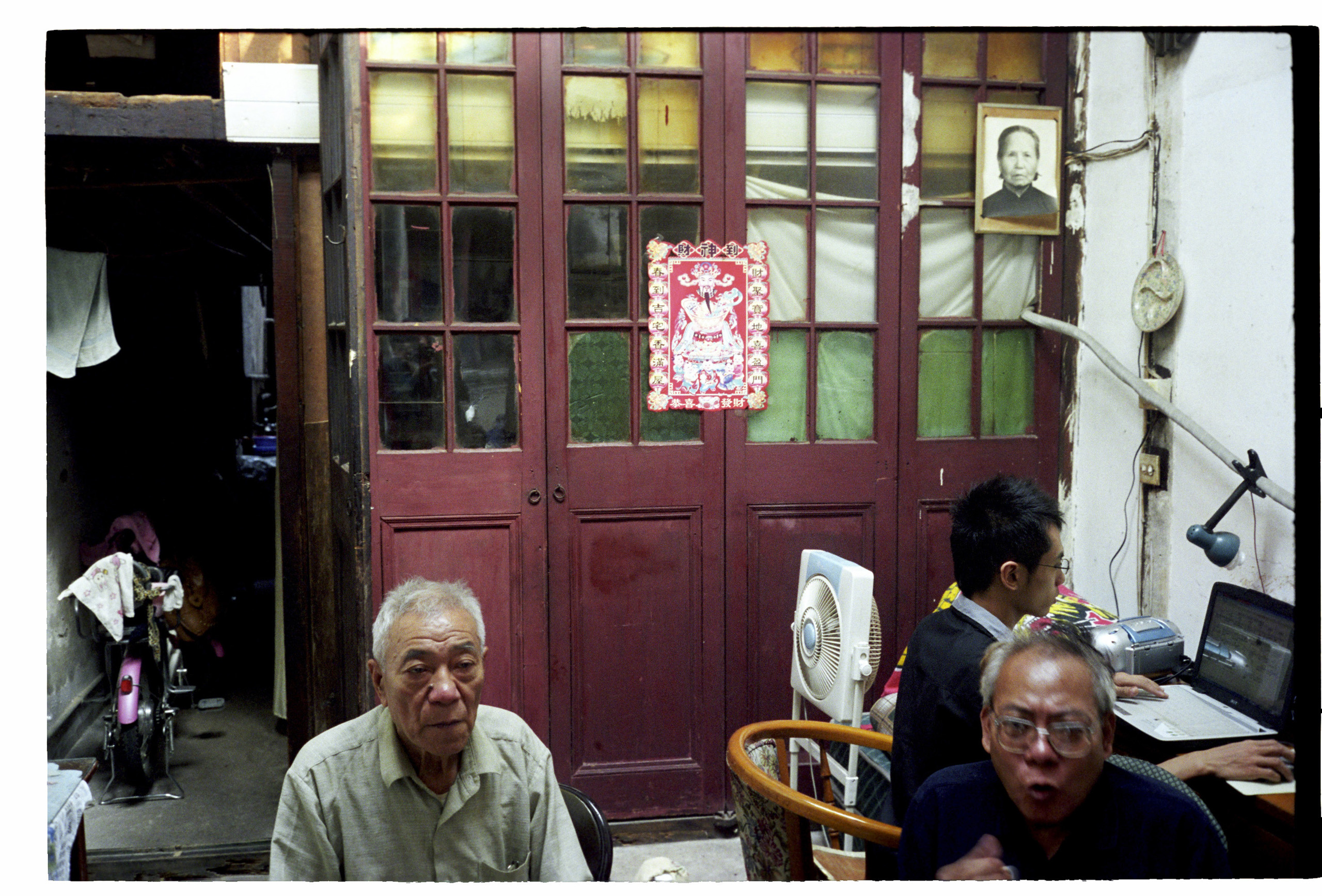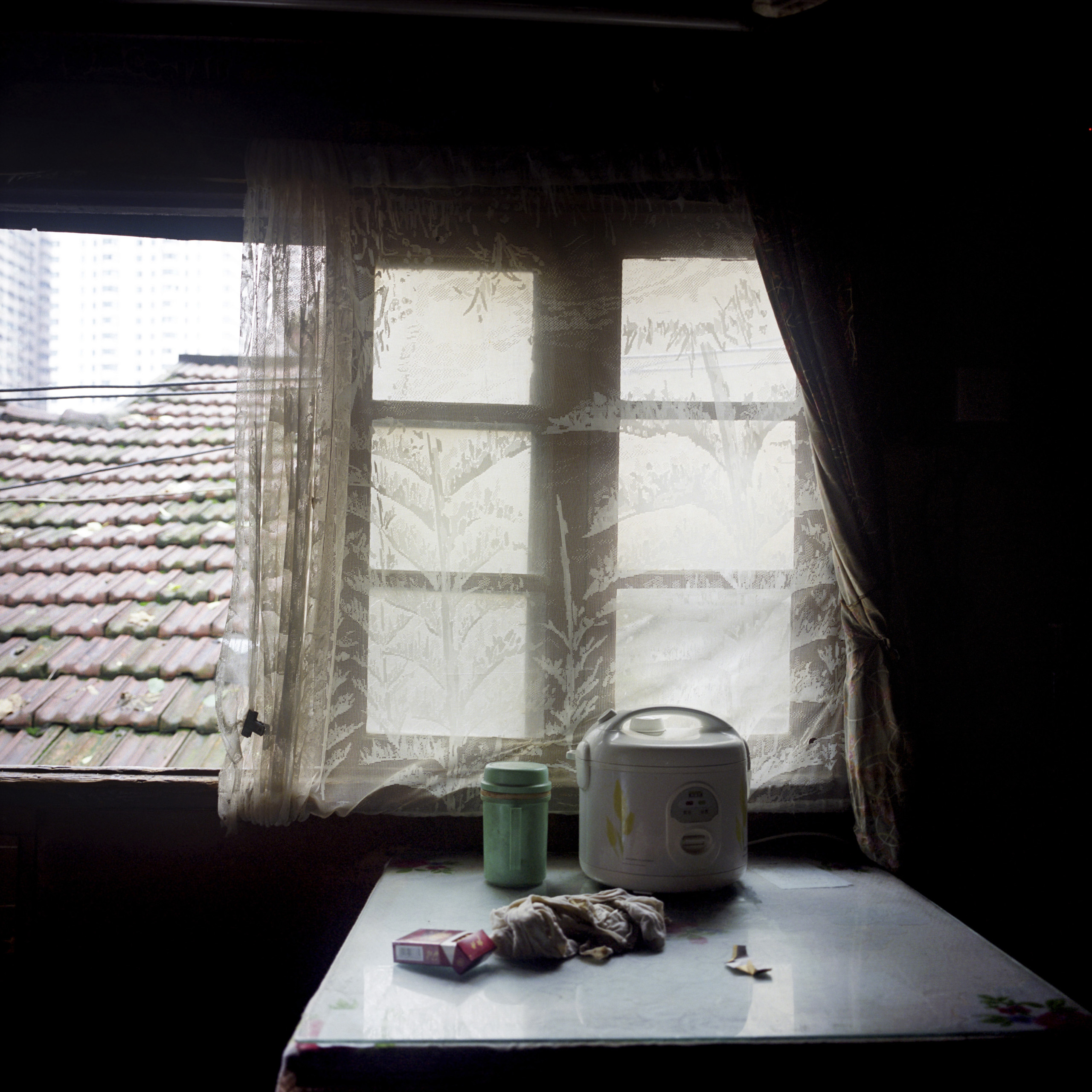The Friction of Everyday Life
Survey 2 – Lives with and without Chai(拆)
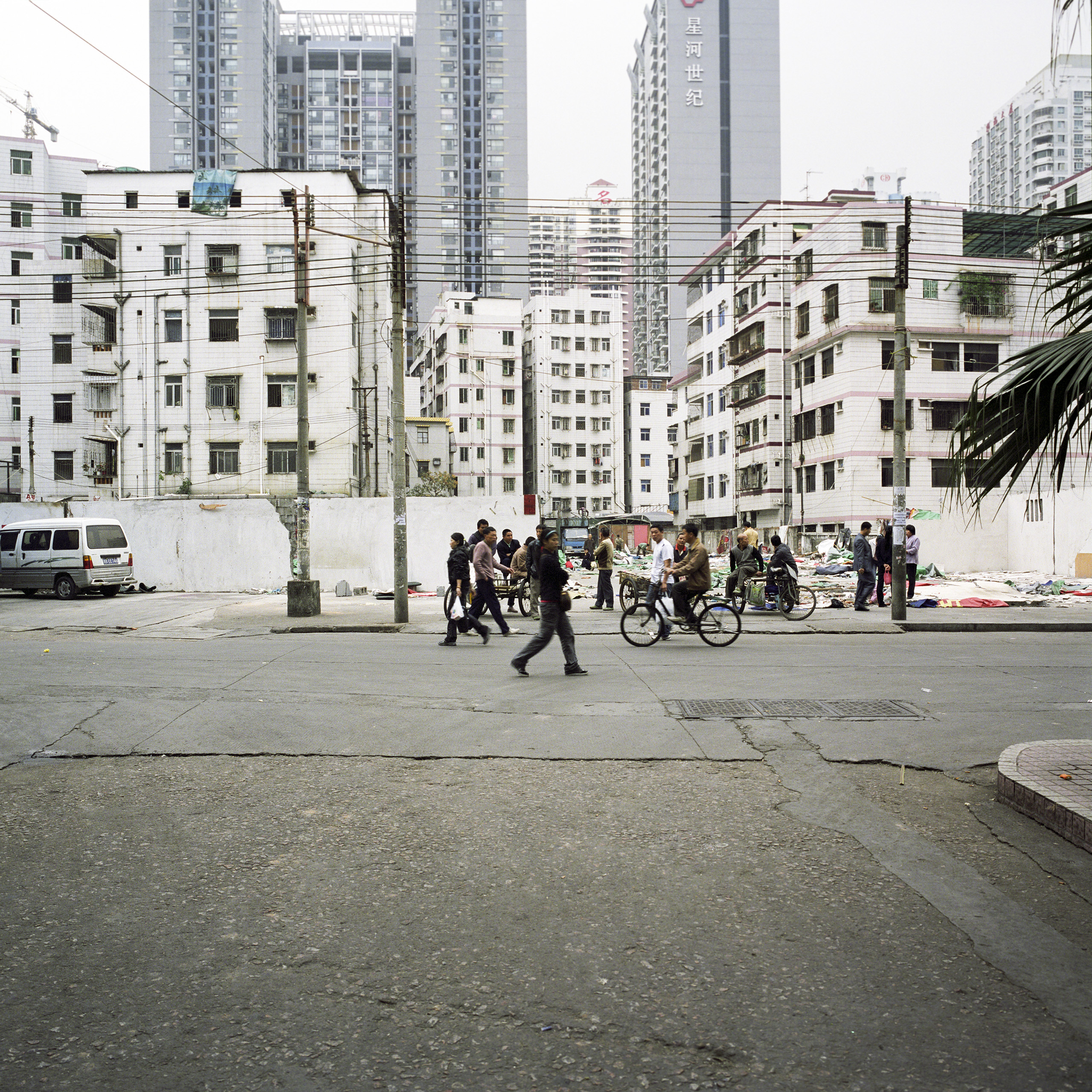
The Chinese character “chai 拆” (demolish) was unavoidable when walking through the streets. Eviction and demolition were staples of China’s urbanization. This section of pictures – taken in Shenzhen and Shanghai from 2009 to 2010 – is a contribution to the study of this subject matter.
For Shenzhen, the images document the demolition and eviction of Gangxia West Village, one of the urban villages razed to make room for the development of the Shenzhen Central Business District. The pictures document the process from a close distance.
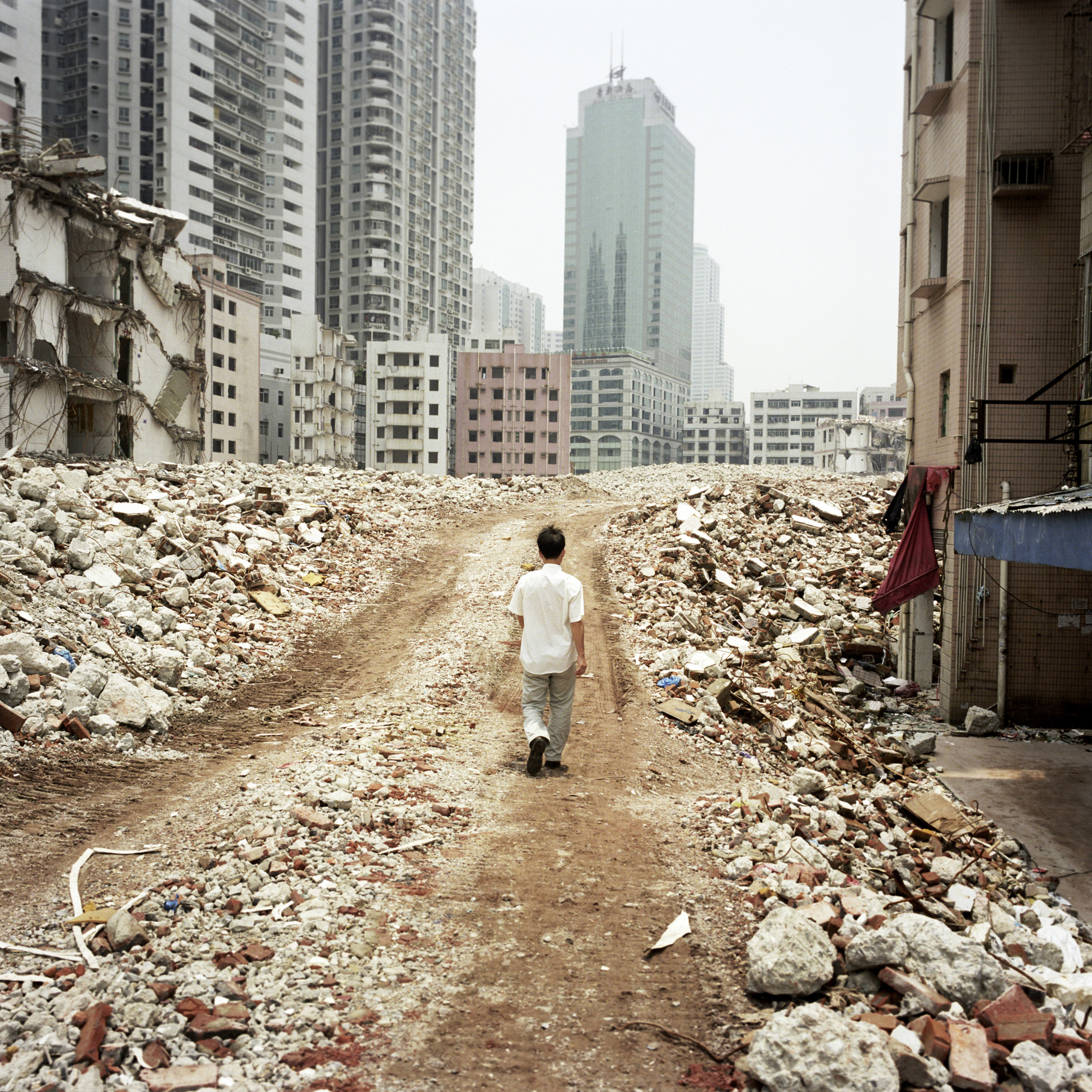
The scene of the demolition of Gangxia West Village. Shenzhen, China, August 2009
For Shanghai, the transformation of individual locations was not at a scale as large as in Shenzhen. Thus, the camera roamed through multiple locations to document people and their living conditions. At the time the pictures were taken, there was a very specific purpose on my mind: I needed images which convey information. Each image covered particular circumstances that I thought were unique.

One family in Lane 1289 West Yan’an Road has been using a chest as a column and timber as a beam to prevent their roof from collapsing. Lane 1289 is one of the neighborhoods that were tucked behind the new buildings and left out from the urban renewal project. Shanghai, China, July 2009
A decade later, Gangxia West Village, which housed 60,000 residents most of whom were low-income migrant workers, has been replaced by an American-style shopping mall and skyscrapers. The houses tucked behind the skyscrapers in Shanghai are still there. Some residents are still struggling to patch the walls and roofs, and have been calling for improvements to the living conditions while others moved out entirely. Major construction sites moved to the then-fringes of the cities. Urbanization in China has evolved from transforming the old cities to expanding the boundaries of the metropolises. The logic of the economy is the major driver in deciding where and what the next project would be.
Shenzhen, China
Shanghai, China
Now, over ten years after these pictures were initially taken, I am organizing them. I had to go through several notebooks to retrieve the details of the circumstances under which each of the photographs was taken. Nevertheless, despite my blurred memories of the tedious policies, I saw people in the pictures as vividly as if I had just met them. I saw individuals as well as the connections among the pictures taken in different cities. In other words, the particularity that I was hoping each photograph could carry was the first to fade. Ten years ago I was busy looking for the character “Chai 拆”, the rubble of demolitions, and their particularity. Now I wish my exploration had gone beyond the physicality of urbanization in China and more about people.

